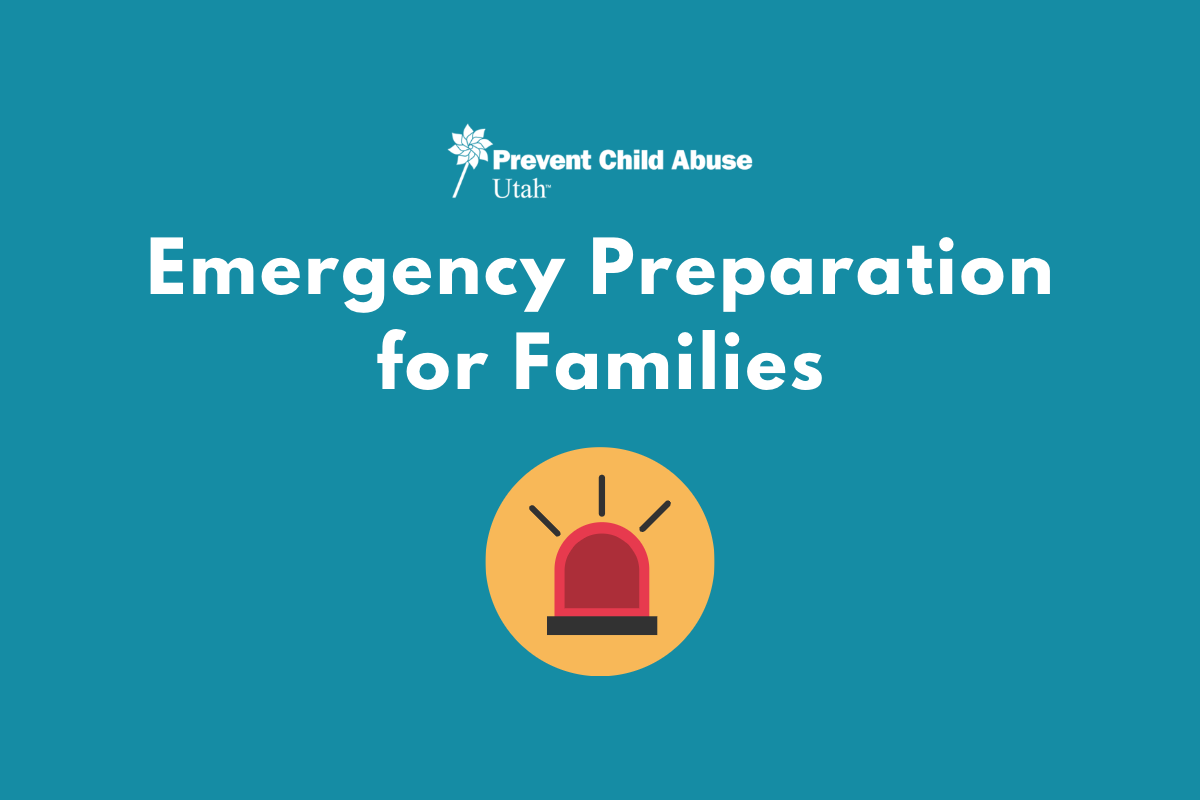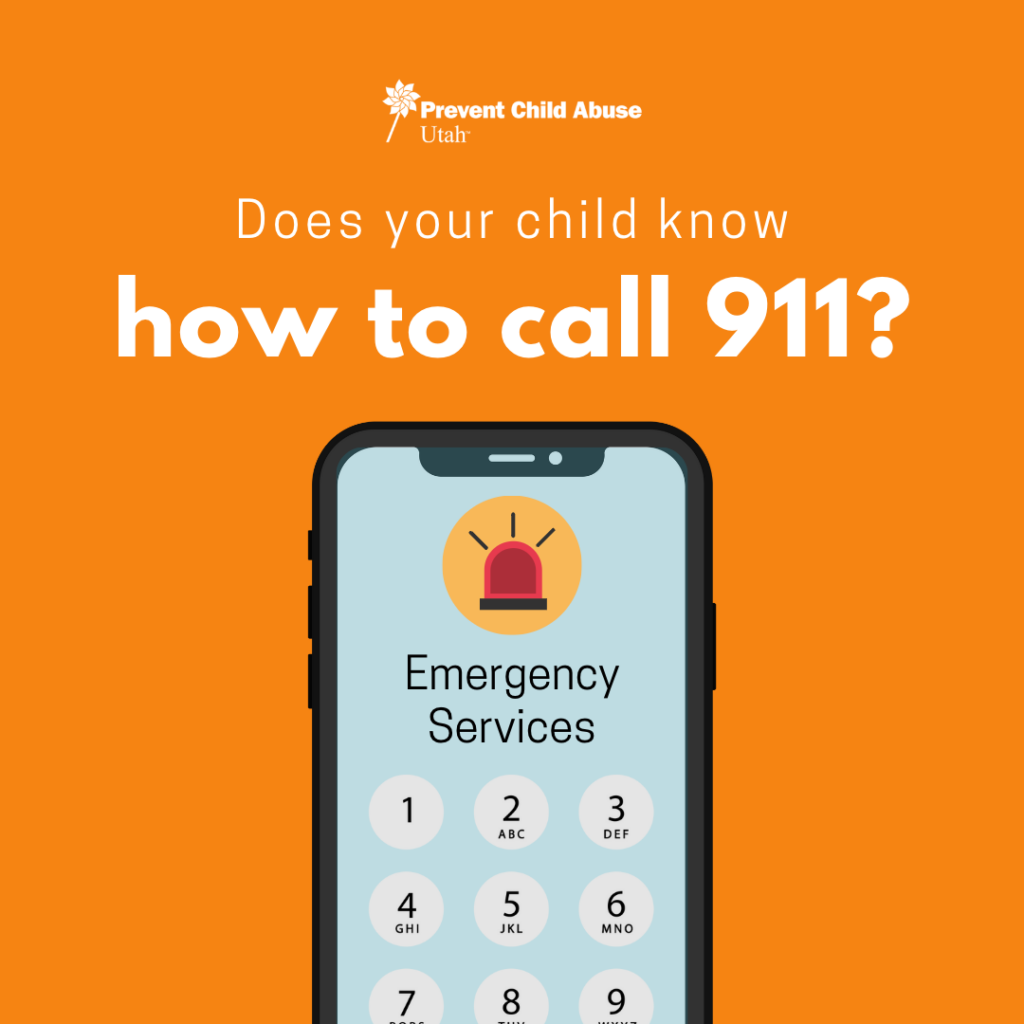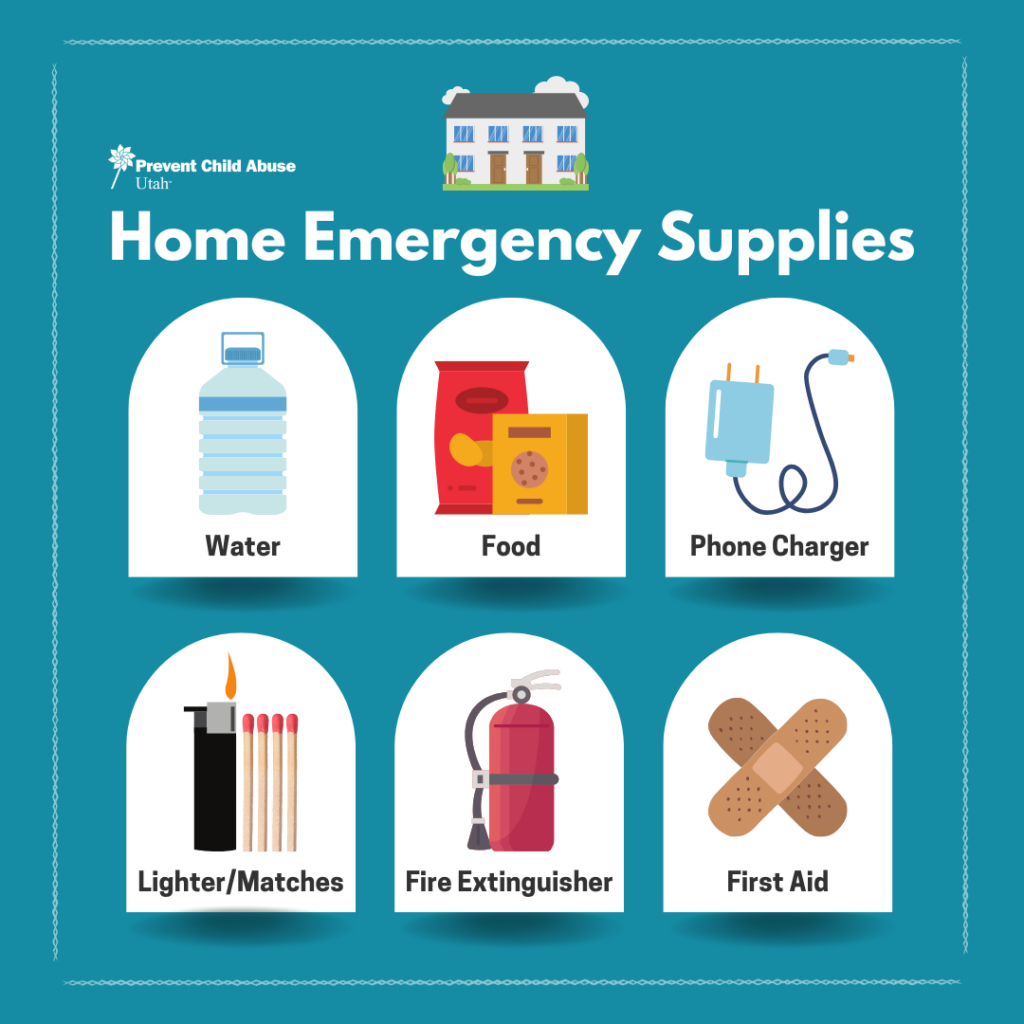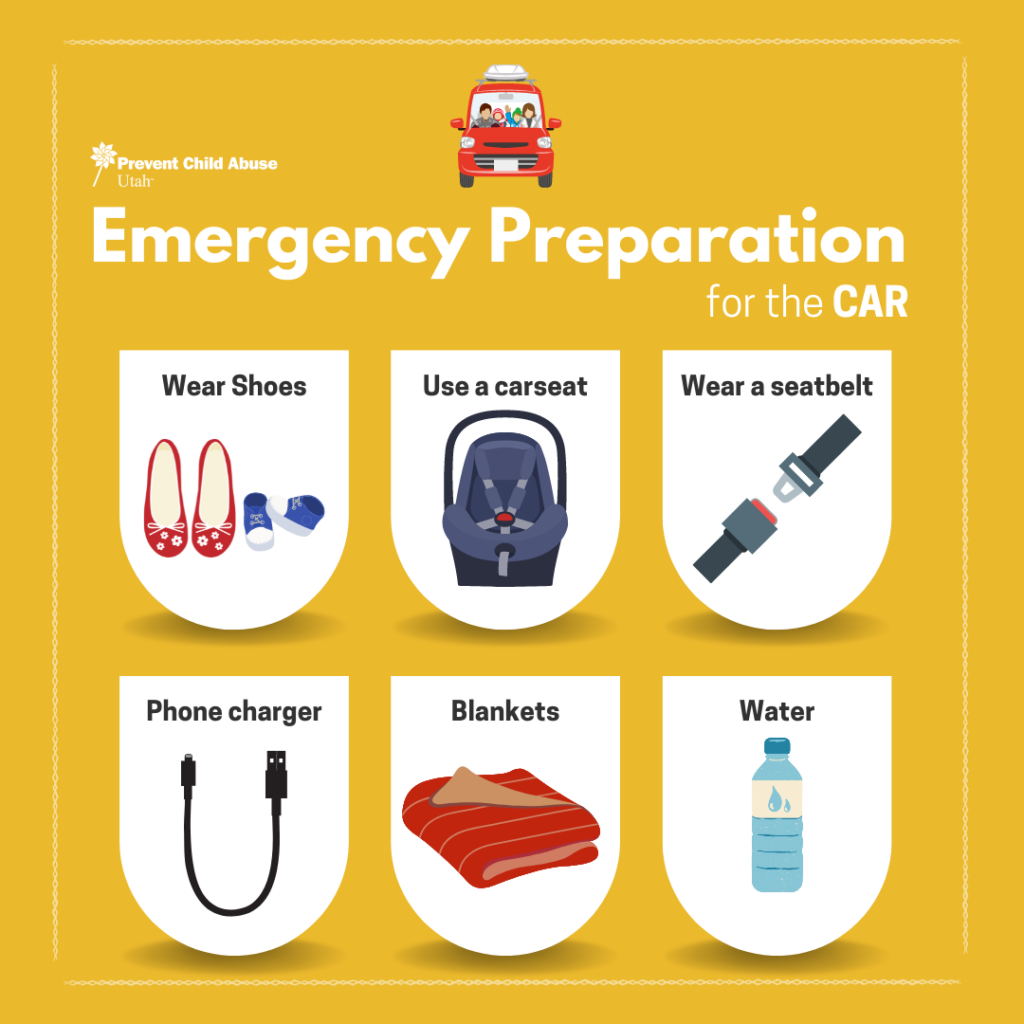
Emergency preparedness is an important topic for anyone, especially those who are raising children. The past few years have highlighted the parts of life that can feel most vulnerable in uncertain times. Living through a pandemic has also made it clear what is and isn’t helpful in an emergency situation.
The best time to prepare for an emergency is before the emergency ever occurs. At Prevent Child Abuse Utah, we understand that parents with young children have increased responsibility and stress during times of emergency.
Here are some ways families with young kids can prepare for emergencies.
Teach Your Children How to Call 911

Twenty years ago, people didn’t have a house full of smartphones or tablets. Families had landline phones. If there was ever an emergency, children could simply pick up the phone and dial 911. Nowadays, it’s rare for families to have a centralized home phone. There may be a number of cell phones in a home–but do your children know how to contact emergency services with a locked cell phone that requires a passcode?
Apple
- On an iPhone, children can use the voice assistant to call 911. Teach them to say, “Hey Siri. Call 911”.
- If your child presses the iPhone’s side button 5 times, the phone will automatically call emergency services as well as any emergency contacts you’ve programmed in.
- Teach your child to swipe up on the lock screen and touch the word “Emergency” on the bottom left corner.
Android
- Show your child how to swipe up from the bottom of the screen and press the red button.
Watch this video for more tips on how to teach your child to use a smartphone to call 911.
Make sure to enter emergency contacts on your phone. If you have a smartphone, this may be a feature you can find in the settings. Another option is to enter a contact and include the letters SOS in the name. For example, enter “SOS Robyn Fenty” if one of your emergency contacts is Rihanna. Another idea is to write down your emergency contacts on a piece of paper and put it in the glove box in your car or tape it to your refrigerator.
Home Emergency Supplies

Another way to prepare for emergencies is to think about what basics your family currently needs. How can you increase your supply of basics so that you have what you need in an emergency?
Think about the food you have in your home right now and figure out how many days your family could comfortably eat if you weren’t able to leave your house.
If you have an infant or toddler, how many days of diapers, formula and food do you have?
What about a first aid kit? Do you have basic medical supplies such as bandaids or children’s Tylenol?
For small kitchen or home fires, make sure you have a fire extinguisher on hand. If you are renting, ask your landlord to provide a fire extinguisher. It’s in their best interest to equip you with what you need to minimize property damage in case of a fire. Something as basic and inexpensive as a box of baking soda can also be a good way to stop small kitchen fires.
What if the power goes out? What would you need to keep yourself and your children comfortable? In winter, you’ll need clothes and blankets to stay warm. During summer months, how will you stay cool and hydrated?
No matter what emergency or disaster, water is essential for life. Gallons of water are sold at Walmart for less than $1.25. Next time you’re at the grocery store, buy 2 gallons of water. Leave one gallon in your car and take one inside.
The CDC and FEMA recommend storing 1 gallon of water per day for one adult. Let’s say you have three children under age 5 and two adults living in the same household. You would need 3 gallons of water for drinking, cooking, and washing for one day. If a mother is breastfeeding, consider adding an extra gallon of water to the storage.
Emergency Preparation in the Car

What about emergencies that happen on the road? Preparation for car emergencies begins at home. Make sure everyone has proper footwear. In the event of a crash or road emergency, you’ll wish you had shoes on! Same goes for the children.
It’s always a good idea to have a phone charger in the car. You’ll want a phone to call 911, or to call someone for help if you need it.
If you ever find yourself stuck in the car, do you have proper clothing to keep yourself warm or cool? If you have a child in diapers, consider having a small back-up supply of diapers, wipes, and disposable bags stored in the car. A change of clothes could also be helpful. Diaper blowouts always seem to happen at the least convenient time.
What can you do today to prepare for an emergency? Buy a gallon of water? Store some extra diapers in the car? Teach your child how to call 911? Whatever you do, you’ll be glad you did!
